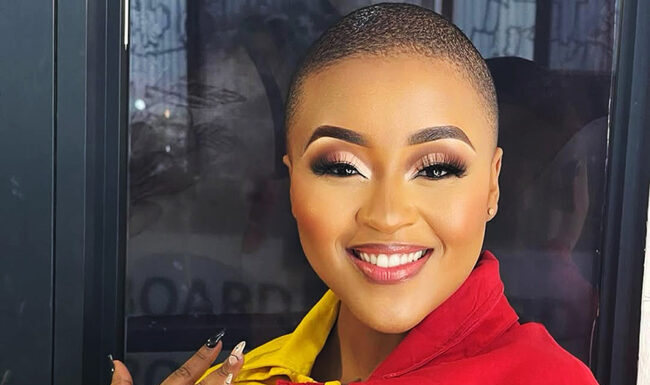In recent months, a striking trend has emerged among local celebrities where several high-profile figures are publicly embracing Christianity, often marked by baptism.
We have seen some, like Gigi Lamayne and Tumi Motsoeneng, also stepping away from ubungoma (traditional healing practices) and turning to Christianity.
These shifts, playing out in viral videos and candid confessions, have sparked curiosity and debate about what is driving the transformations.
Khanyi Mbau cautioned against it
Socialite Khanyi Mbau came under fire after she cautioned celebrities against ukuthwasa or ubungoma. The process involves going through the rituals of becoming a sangoma/traditional healer. By then there was an explosion of celebrities becoming sangomas, including wisecracking radio personality Dineo Ranaka.
Mbau argued that most of them are just having anxiety attacks, not a traditional calling. And she urged them to start taking Vitamin B12 supplements instead of becoming sangomas. Could she have been right all along?
Another socialite, Nonhle Thema, recently confessed that she dabbled in “dark forces” in her quest for fame and fortune. She also said she had to stop after realising that there are no quick fixes in life. Could this also mean some of our celebrities are going through the same awakening?
Broader tension between tradition and modernity
From personal awakenings to cultural pressures, the reasons are as varied as the individuals involved. Yet they reflect a broader tension between tradition and modernity in South Africa.
One prominent example is Kefilwe Mabote, a star of Young, Famous & African, whose baptism video went viral in April 2025. Mabote announced she was leaving her “baddie” lifestyle to dedicate herself to God. She framed it as a profound personal shift.
Similarly, rapper Gigi Lamayne underwent baptism, suggesting a possible influence from specific religious communities gaining traction among celebrities.
Gogo Skhotheni
Cassper Nyovest, another hip hop heavyweight, also declared himself born-again in 2025. This also reinforced this wave of spiritual reinvention.
Perhaps the most striking case is Tumi Motsoeneng, known as Gogo Skhotheni. South Africa came to know her as a traditional healer who became famous for dishing out all the inner workings of gobelas. However, she recently resigned from ubungoma. Motsoeneng described her journey as one that veered into “witchcraft and other things”. She labelled it the darkest phase of her life.
Her exit highlights a recurring theme of disillusionment with the demands or moral conflicts some associate with ubungoma. For Gogo Skhotheni, Christianity offered a way out of that darkness. A sentiment echoed by others seeking clarity or redemption.
Boity Thulo
Other examples add depth to the trend. Actress and TV personality Boity Thulo has openly embraced her Christian faith in recent years. She distanced herself from earlier associations with traditional practices.
Meanwhile, singer Winnie Mashaba, long rooted in gospel, has doubled down on her faith. She reportedly rejected aspects of traditional healing she once explored. These cases suggest a broader movement, where public figures are reevaluating their spiritual identities.
Social media offers clues about the forces at play. Some speculate about a “black shirt chlorine-pool dipping cult”, a tongue-in-cheek reference to a specific church linked to multiple baptisms.
Ubungoma vs Christianity
While unproven, the overlap in timing and location fuels theories of influential religious movements. Beyond that, there is a growing cultural narrative questioning the compatibility of ubungoma with Christianity. This is amplified by South Africa’s evolving religious landscape.
For some, this shift might be about reinvention, shedding old personas for new ones in the public eye. For others, it’s deeply personal, a response to crises or a search for meaning. Whatever the catalyst, these celebrity conversions are more than individual stories, they are a mirror to a society grappling with its spiritual soul.



